Most recent articles by Gerrit Wustmann
-
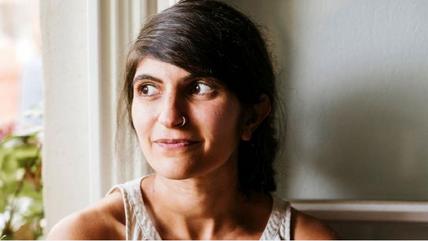 Book review: Shida Bazyar's novel "Drei Kameradinnen"
Book review: Shida Bazyar's novel "Drei Kameradinnen"Words like fire
Shida Bazyar's new novel is the literary surprise of the year. It tackles the pressing issues of our time, and yet it is timeless. This is a story of friendship, marginalisation and society's blindness to its own deep-seated problems. Gerrit Wustmann read the book for Qantara.de
-
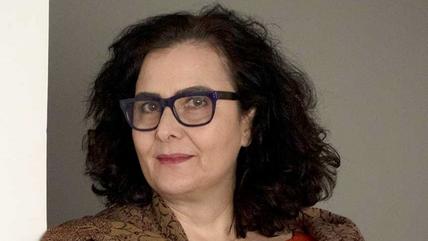 Chaza Charafeddine's "Beirut für wilde Mädchen"
Chaza Charafeddine's "Beirut für wilde Mädchen"Flashback from Beirut
A childhood and youth in Beirut, a life lived between Lebanon, Switzerland and Germany, and a unique voice in Arabic-language literature: "Beirut für wilde Mädchen" sees Lebanese author Chaza Charafeddine tell her country’s story from a highly personal perspective. Gerrit Wustmann read the book
-
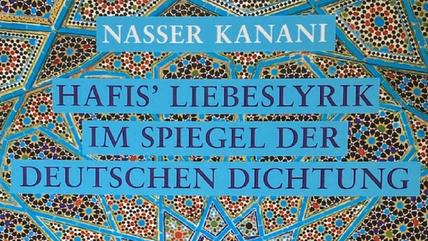 Iranian literature in Germany
Iranian literature in GermanyRoses from Shiraz: German devotees of Hafez
For centuries, the great classical Persian author Hafez has inspired German writers. Translations, adaptions and homages have been created in his wake, and the process continues today. Nasser Kanani has published an expansive book on Hafez’ German devotees. By Gerrit Wustmann
-
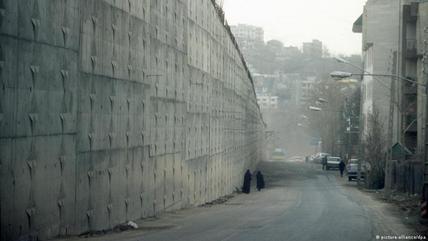 Ava Farmehri's "Through the sad wood our corpses will hang"
Ava Farmehri's "Through the sad wood our corpses will hang"Flashback to a childhood in Tehran
Iranian-Canadian author Ava Farmehri’s debut novel paints a bleak picture of growing up in Iran after the Islamic Revolution. The book is both a prison novel and a reflection on freedom. Gerrit Wustmann read it for Qantara.de
-
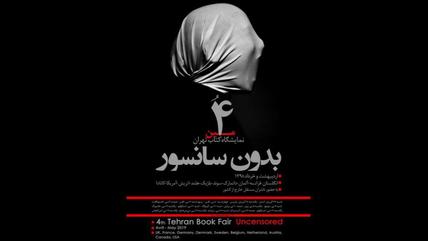 Alireza Abiz' "Censorship of Literature in Post-Revolutionary Iran"
Alireza Abiz' "Censorship of Literature in Post-Revolutionary Iran"Iranian literature – the censor’s mindset
The Islamic Republic has a strict and often arbitrary system of censoring artistic and journalistic works. An in-depth investigation by writer Alireza Abiz uncovers the details and their impact on the book trade. By Gerrit Wustmann
-
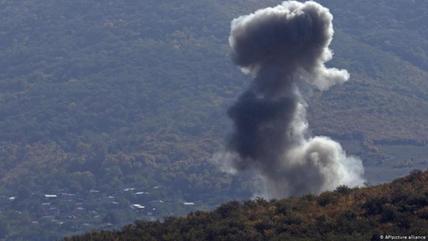 Armenia, Azerbaijan – and Nagorno-Karabakh
Armenia, Azerbaijan – and Nagorno-Karabakh“Germany is pretending not to see or hear“
After more than a month of war, there is a new ceasefire between Armenia and Azerbaijan. But whether it will last remains questionable. The conflict in Nagorno-Karabakh sees Turkey deploying mercenaries, Israel supplying weapons – and Germany keeping a low profile. German-Armenian lawyer Ilias Uyar is sharply critical. Gerrit Wustmann spoke to him
-
 Interview with Iranian translator Mahmoud Hosseini Zad
Interview with Iranian translator Mahmoud Hosseini ZadA naked image of the truth
Iran's capital city, Tehran, is firmly in the grip of the coronavirus pandemic. The cultural scene is suffering because of it too. But in the face of adversity and the often arbitrary interventions by the censor, books are still being published – such as the diaries of David Rubinowicz, who was murdered by the Nazis. Mahmoud Hosseini Zad translated the book. He spoke to Gerrit Wustmann about his work and the current situation in Iran
-
 Non-fiction: Dina Nayeri’s "The Ungrateful Refugee"
Non-fiction: Dina Nayeri’s "The Ungrateful Refugee"Refugees don’t have to be grateful; they have no debt to repay
Refugees are expected to show gratitude and humility towards the country that has taken them in. In her new book, "The Ungrateful Refugee", Dina Nayeri sets out why this is a wholly misguided assumption. By Gerrit Wustmann
-
 Book review: Amir Hassan Cheheltan's "Der Zirkel der Literaturliebhaber"
Book review: Amir Hassan Cheheltan's "Der Zirkel der Literaturliebhaber"A literary cocoon
For decades, lovers of literature would gather at the house of writer Amir Hassan Cheheltan's family to debate classical Persian works – until politics forced its way into the readers' cocoon. By Gerrit Wustmann
-
 Book review: "Moon Brow" by Shahriar Mandanipour
Book review: "Moon Brow" by Shahriar MandanipourThe angels of war
Over ten years after the publication of "Censoring an Iranian Love Story", Shahriar Mandanipour's latest novel, "Moon Brow", is now available in German translation. This is a story about the loss of youth, the horrors of war and a land in the iron grip of dictatorship. By Gerrit Wustmann
-
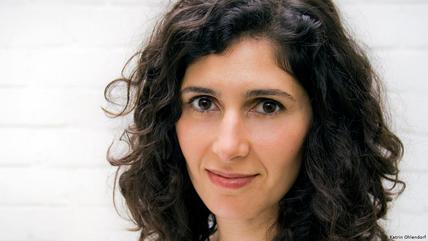 Book review: Nava Ebrahimi’s "Das Paradies meines Nachbarn"
Book review: Nava Ebrahimi’s "Das Paradies meines Nachbarn"The scars of war
War, escape, exile and the question of one’s own identity are central themes in Nava Ebrahimi’s second novel "Das Paradies meines Nachbarn". Gerrit Wustmann read the book
-
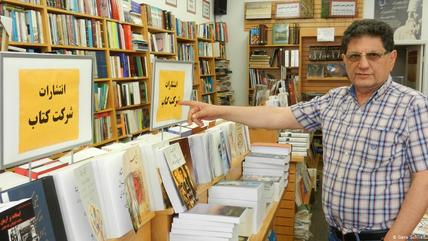 Contemporary Iranian literature
Contemporary Iranian literatureReading outside the box
Mullahs, dictatorship, nuclear conflict – Iran could be reduced to these keywords if one were to rely only on the articles in the daily press. But to really understand a country better, you have to study its literature. And Iranian literature is just as diverse as the country itself. By Gerrit Wustmann